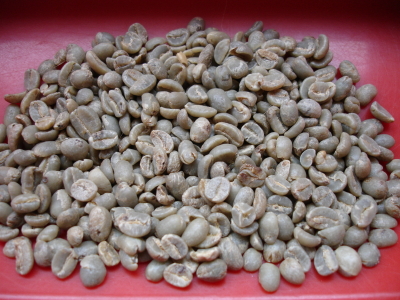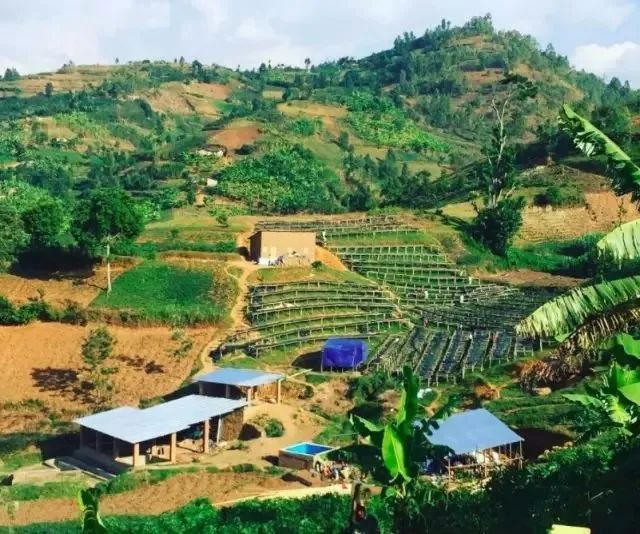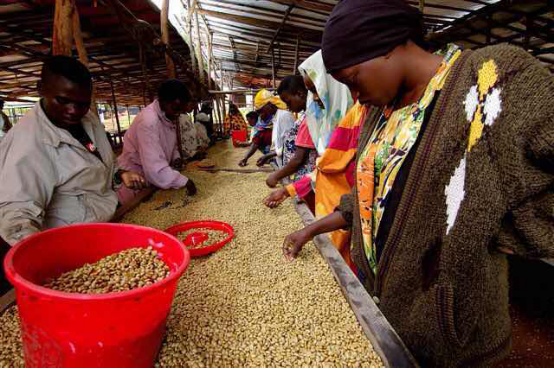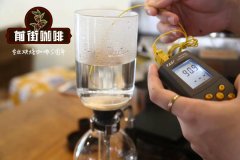Rwanda Coffee | characteristics of Rwanda Coffee beans | Red bourbon of Nyakizu Farmers' Association

Professional coffee knowledge exchange more coffee bean information please follow the coffee workshop (Wechat official account cafe_style)
Country: Rwanda
Region: Nyakizu area
Farm Garden: Nyakizu Farmers' Association of Rwanda
Variety: Red Bourbon red bourbon species
Treatment: washing
Drying method: sun drying on scaffolding
Pearl Coffee Project: tutoring Cooperative
Dry aroma, with strong spicy aromas of star anise cinnamon and ripe fruit (similar to the sweet aroma of Phoenix pear).
Wet fragrance, can clearly distinguish with the strong rising flower aroma as the main axis and the fusion of fruit acidity, fruit sweet aroma. On the other hand, the lower aroma has the aroma of traditional Chinese medicine Ganxiang.
Rwanda's climate and altitude and high-quality bourbon varieties of coffee trees are capable of producing high-quality coffee.

The Nyakizu Farmers' Association is located in Butare, the second largest city near Rwanda.
The Nyakizu Farmers' Association was founded in 2006. The Nyakizu Farmers' Association is the latest partnership of the Pearl Coffee Project, which aims to rebuild agricultural institutions in Rwanda, increase production capacity, improve the lives of farmers and produce quality coffee on a sustainable basis.
Rwanda: this small East African country should not be ignored by roasters and coffee lovers. It is known as the hometown of thousands of mountains, and its high-quality, high-altitude coffee coexists with its poverty.
It is not the largest coffee producer in Africa; in 2016, it harvested only 220000 bags of coffee (60 kg), compared with 7.1 million in Ethiopia and 4.9 million in Uganda. But Rwanda is positioning itself as a world-class producer of boutique coffee.

Coffee was not grown in Rwanda before. Coffee was introduced into the country by German missionaries around the beginning of the 20th century. Since then, coffee has been a source of income for many rural families.
However, no record in the history of Rwanda can ignore the tragedy of the 1994 Rwandan Holocaust, when 800000 people were killed and as many as 250000 women were raped in just 100 days. After the tragedy, various guild organizations such as the Partnership for Enhancing Agriculture in Rwanda through Linkages (PEARL), Sustainable Partnerships to Enhance Rural Enterprises and Agricultural Development (SPREAD) PEARL and SPREAD were funded by the United States Agency for International Development (USAID) to support the reconstruction of agriculture in Rwanda.
As one of the most valuable crops in the country, coffee is one of the focuses of agricultural reconstruction plans. The impact of investment in infrastructure and training for coffee producers still exists today.
In the past, coffee in Rwanda was handled by independent farmers, whose quality was unstable and then mixed with coffee processed by neighboring farms. However, in the wake of the genocidal upheaval, both the Government and PEARL agencies encouraged producers to invest in full washing processes. There are now 245 processing stations in the country.

It is worth mentioning that the whole water washing treatment, also known as double washing (double washed), is usually treated in a slightly different way than the water washing treatment washed. Coffee is usually soaked twice, which is common in Africa but not in Latin America. Of course, if you work hard enough, you will also find other ways to deal with it. However, the flavor of typical Rwandan coffee is high sweet, mellow and full-bodied.
Wet fermentation is sometimes called "double washing" double washed, "double fermentation" double fermented, "Kenyan water washing", and so on. This treatment is common in East Africa and can improve purity. After removing the skin and pulp of the coffee, soak the coffee with parchment in water, which can prolong the fermentation time and produce a soft mellow thickness, complex acidity, and more subtle flavor. Different temperature and water quality will become important influencing factors. We still need to explore and learn more about the effects of different water quality on coffee fermentation.
Qianjie coffee: Guangzhou bakery, the store is small but a variety of beans, you can find a variety of unknown beans, but also provide online store services. Https://shop104210103.taobao.com
Important Notice :
前街咖啡 FrontStreet Coffee has moved to new addredd:
FrontStreet Coffee Address: 315,Donghua East Road,GuangZhou
Tel:020 38364473
- Prev

Rwanda Coffee | characteristics of Rwanda Coffee beans | washing Red bourbon in Engma treatment Plant
Professional coffee knowledge exchange more coffee bean information please follow the coffee workshop (Wechat official account cafe_style) Rwanda coffee bean Luanda Engma processing plant washing red bourbon water content: 11.4% density: 1.25 g/cm3 Water activity National Rwanda Rwanda Rushasi-Southern Province of Rwanda Farm / processing Plant Ngoma Engma
- Next

Is coffee like shit really good? Introduction to the origin of coffee like shit how much is a cup of coffee like shit
Professional coffee knowledge exchange more coffee bean information Please follow the coffee workshop (Wechat official account cafe_style) for coffee, I am afraid many people are no stranger to coffee, but do you know Kopi Luwak and shit-like coffee? What are their peculiarities? What's the difference in taste? Kopi Luwak refers to the peel of coffee berries when a civet eats fresh coffee beans through its intestines.
Related
- Does Rose Summer choose Blue, Green or Red? Detailed explanation of Rose Summer Coffee plots and Classification in Panamanian Jade Manor
- What is the difference between the origin, producing area, processing plant, cooperative and manor of coffee beans?
- How fine does the espresso powder fit? how to grind the espresso?
- Sca coffee roasting degree color card coffee roasting degree 8 roasting color values what do you mean?
- The practice of lattes: how to make lattes at home
- Introduction to Indonesian Fine Coffee beans-- Java Coffee producing area of Indonesian Arabica Coffee
- How much will the flavor of light and medium roasted rose summer be expressed? What baking level is rose summer suitable for?
- Introduction to the characteristics of washing, sun-drying or wet-planing coffee commonly used in Mantenin, Indonesia
- Price characteristics of Arabica Coffee Bean Starbucks introduction to Manning Coffee Bean Taste producing area Variety Manor
- What is the authentic Yega flavor? What are the flavor characteristics of the really excellent Yejasuffi coffee beans?

